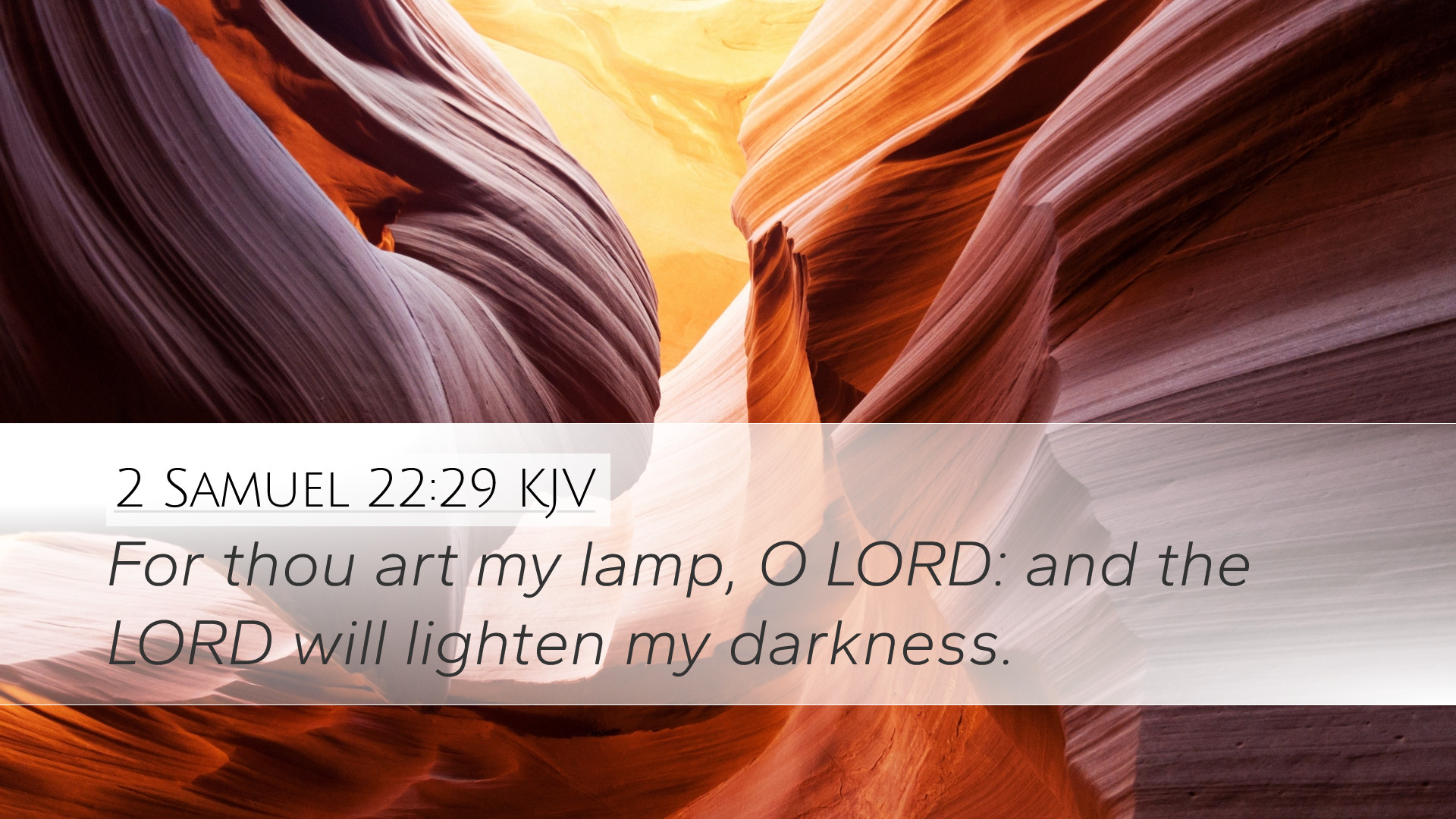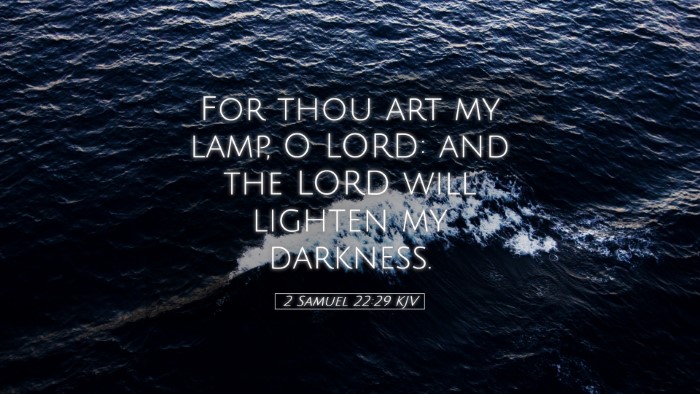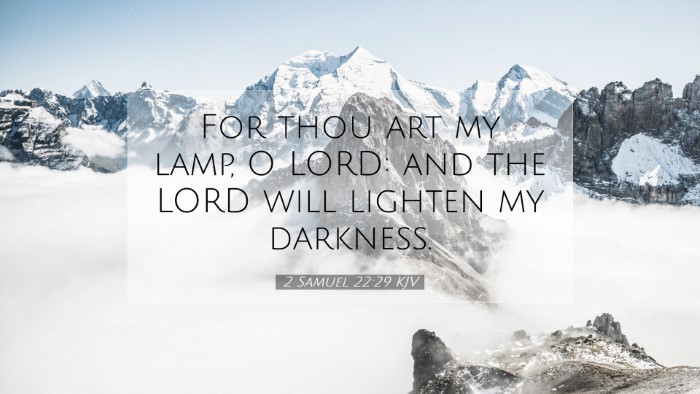Commentary on 2 Samuel 22:29
Verse: "For thou art my lamp, O Lord: and the Lord will lighten my darkness."
Introduction
This verse is a part of David's song of praise to God following his deliverance from his enemies and King Saul. It encapsulates the profound relationship between the believer and God as the source of light in times of darkness. In exploring this verse, insights from notable commentaries such as those by Matthew Henry, Albert Barnes, and Adam Clarke will be synthesized to offer depth and clarity for pastors, students, theologians, and Bible scholars.
Contextual Background
2 Samuel 22 serves as a poetic reflection of David’s life experiences, portraying God's faithfulness and power. It is structured much like a psalm, with rich imagery and theological depth. David recounts his trials and how God responded to his cries for help. Understanding the historical context of this passage is critical; it corresponds to a period in David’s life marked by both personal and political turbulence.
Analysis of Key Phrases
"For thou art my lamp, O Lord"
This statement highlights the personal relationship David has with God, recognizing Him as a guiding light. Matthew Henry emphasizes that God's presence illumines the believer's path, providing clarity in the midst of confusion. This aligns with Psalm 119:105, where the Word of God is described as a lamp to the feet and a light to the path.
"And the Lord will lighten my darkness"
David acknowledges the reality of darkness—symbolizing trials, fears, and uncertainties. Albert Barnes notes that the promise of divine light implies not only illumination but also comfort and hope. The Hebrew term for “lighten” suggests an active role by God in dispelling darkness, reinforcing the idea that God intervenes in human experience, bringing relief and guidance.
Theological Implications
This verse presents several theological themes relevant to modern believers:
- God as Illumination: The role of God in the lives of believers is akin to a lamp, guiding them through moral and spiritual dilemmas.
- The Reality of Darkness: Acknowledgment of darkness is crucial in understanding the human condition. Believers are not promised a life void of struggles but are given assurance that God will be their light.
- Hope in Adversity: The promise that the Lord will lighten one's darkness serves as a profound source of hope for Christians facing difficulties.
Practical Applications
For pastors and church leaders, this passage encourages them to remind congregations that God is ever-present, providing comfort during trials. It invites believers to rely on God’s wisdom and understanding in moments of despair.
Aspects to consider in preaching:
- Encouragement in Darkness: Just as David experienced God's presence, pastors should encourage believers to seek God as their light.
- Invocation of Psalms: Integrating Psalms that speak to God's guidance can enhance the understanding of this verse's message.
- Community Support: The Church is called to be a community that reflects Christ's light. Pastors should foster environments where congregants encourage one another.
Conclusion
The insights provided through the lenses of Matthew Henry, Albert Barnes, and Adam Clarke reveal that 2 Samuel 22:29 is a powerful declaration of faith. It exalts God as the illuminating force in a believer’s life, reinforcing the conviction that in every dark moment, God is active and present, working for the good of those who love Him. This verse serves not just as a theological affirmation but as an invitation to deeper trust in God's unchanging character as the faithful light in our journeys.


